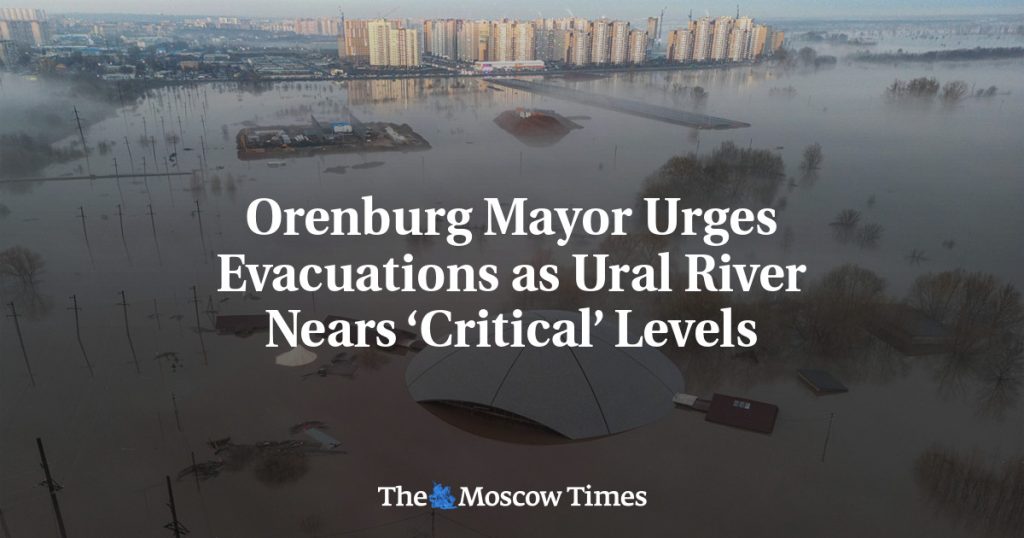The southern Russian city of Orenburg is currently facing a major flooding crisis, with water levels in the nearby Ural River continuing to rise. Local authorities have issued evacuation orders for residents in impacted areas and are closely monitoring the situation. The flooding is said to be the worst in decades, with dozens of cities and towns either partially or fully submerged after a protective dam burst near the city of Orsk. In Orenburg, the river embankment, several neighborhoods, and surrounding settlements have been underwater since late last week.
As of Thursday morning, the Ural River in Orenburg had risen by 82 centimeters, reaching a height of 10.6 meters – 1.3 meters above critical levels. Local meteorological centers have described the rising waters as “completely unprecedented,” noting that such flooding has not been seen since at least 1947. Orenburg Mayor Sergei Salmin has urged residents in flooded areas to evacuate immediately rather than waiting for the situation to become critical. The flooding has been exacerbated by fast-melting snow and ice in Russia’s southern Urals, western Siberia, and northern Kazakhstan.
Efforts to evacuate those affected by the flooding have been underway, with Russian authorities evacuating over 7,700 people, mainly from the Orenburg region, and Kazakhstan evacuating around 100,000 citizens. It is estimated that 10,500 homes have been flooded across 37 regions in Russia. To address the crisis, Russian President Vladimir Putin held a video conference with top government officials and the governors of the most impacted regions, including Orenburg Governor Denis Pasler. Pasler informed Putin that the Ural River had reached an “all-time” high of 10.87 meters and estimated damages in the Orenburg region at 40 billion rubles ($429 million).
The situation in Orenburg remains critical, with water levels expected to peak within the next 24 hours before beginning to decrease. Efforts are ongoing to monitor the most severely impacted areas and ensure the safety of residents. The flooding has caused significant damage to infrastructure and homes in the region, with estimates of the total damages surpassing initial projections. Authorities continue to work on relief efforts and evacuation plans to assist those affected by the flooding crisis. The unprecedented nature of the flooding has underscored the need for proactive measures to address the impacts of climate change and extreme weather events in the region.


